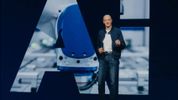This analysis by Kaenan Hertz and Tiffani Bova draws out two outcomes I pondered over in yesterdays blog about the planned acquisition of Metromile by Lemonade .
- Hippo and Root could be a stronger consolidation
- For Incumbent carriers auto insurance is core and they have resources to fight disruption
Hippo and Root
"The real market opportunity might be with Root. Hippo currently has a program in place to combine their home insurance product with Metromile’s car insurance. I suspect Hippo is looking for a new car insurance partner. Root is larger and more established, and the combination with Hippo might be even better for both companies.
The future is always uncertain, but one thing is certain: there will be further consolidation among the Insurtechs. Will Root buy Hippo or vice-versa? Only time will tell who will win this battle."
We both agree that consolidation amongst insurtechs will be a determinant of eventual winners.
Incumbent Carriers
" Established names like Geico and Progressive. These bears are much bigger and stronger than Metromile and Root, with better economic returns to prove it. Allstate has more driving behavior data than Metromile. Geico, Progressive, and Allstate can eat up smaller competitors like Metromile for lunch, with barely any indigestion."
Direct Line Group (DLG) in the UK, Admiral and Sabre (amongst many) treat auto insurance as a core business and DLG has invested massively in insurtech and the very technologies that Lemonade and Metromile are so proud of.
Allianz acquires Control€xpert a technology, data science and systems integrator and is determined to deliver the best product and claims service to its policy holders and brokers globally. Generali has the same strategy. These are tough competitors.
And auto insurance is complicated. Different regulations in different countries never mind the different states in the USA. Compliance, regulation and culture all impacting claims operations. As ADAS develops from the current Levels 2 & 3 to Level 4 and 5, the autonomous vehicle vison, the shift to product liability accelerates and so does insurance. Continental European countries have different regulatory approaches to product liability and driver liability than the UK. For the UK insurer covering a British driver involved in a road traffic accident in France the claims process is complicated and vice versa. Technology can help but there is no escaping the need for the expertise of claims adjusters, legal and fraud professionals, investigators, recovery organisations and the complicated triage of all the parties involved.
The increased penetration of the market by electric vehicles and hybrids is already challenging repair networks which forecast a serious shortage of skilled EV technicians. With the majority of the value of an EV being in the battery the skills and technology needed to repair these open the opportunity for new entrants to the market.
Technological disruption like this does, though, provide an opportunity for new entrants.
Elon Musk, after all, was an industry outsider when he set up Tesla, his (for now) Californian carmaker, which launched its first EV, the Roadster, in 2008. Already there are signs that companies from other areas are looking to enter the EV-servicing business.
"After buying a Roadster, Pete Gruber started repairing them in 2013. His company, Gruber Motor, based in Phoenix, Arizona, has grown into an independent Tesla service centre. The firm has developed its own tools and test equipment to repair the individual components in the electronics and batteries of Tesla cars. This is possible, says Mr Gruber, because he has also had more than 30 years experience running a company that repairs high-voltage power systems in data centres, meaning the technology was familiar."
The Economist 23rd October 2021
Incumbent carriers are in a strong position to understand the opportunities and challenges that these changes bring and have the capital and customer base to compete. Doesn't mean that all will and McKinsey famously concluded that only 20% of insurers make an economic return on capital employed so there will be some carnage.
Carriers have the choice to build their own platforms leveraging partners like Unqork and their own claims expertise to speed up the process but also a good choice of technology partners with existing solutions that are dynamically innovating to allow incumbent insurers to maintain a competitive advantage.
They can acquire Pomander & Metromile or Hippo and Root or other groupings.
And a final and parallel strand. Just as Tesla will deliver auto insurance and repair networks so auto OEMS will embed insurance and mobility services. The vehicle platform providers like Bosch have an interest in monetising data. There are many parties in this plot.
This narrative has a long way to go. But one thing is certain.
The Lemonade-Metromile announcement is a harbinger of change and the actual outcomes will surprise many.
Further reading starting with my article yesterday
Lemonade acquiring Metromile challenges incumbent carriers
Embedded insurance, EVs, the connected vehicle and data monetization
Innovation- Scenarios Management applied to auto insurance
Car manufacturers or traditional insurance carriers. Who will win the tech race?
The real market opportunity might be with Root. Hippo currently has a program in place to combine their home insurance product with Metromile’s car insurance. I suspect Hippo is looking for a new car insurance partner. Root is larger and more established, and the combination with Hippo might be even better for both companies. The future is always uncertain, but one thing is certain: there will be further consolidation among the Insurtechs. Will Root buy Hippo or vice-versa? Only time will tell who will win this battle.
https://insurtechadvisors.com/2021/11/09/lemonade-buys-metromile-for-500m/









